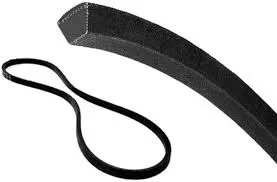- Arabic
- French
- Russian
- Spanish
- Portuguese
- Turkish
- Armenian
- English
- Albanian
- Amharic
- Azerbaijani
- Basque
- Belarusian
- Bengali
- Bosnian
- Bulgarian
- Catalan
- Cebuano
- Corsican
- Croatian
- Czech
- Danish
- Dutch
- Afrikaans
- Esperanto
- Estonian
- Finnish
- Frisian
- Galician
- Georgian
- German
- Greek
- Gujarati
- Haitian Creole
- hausa
- hawaiian
- Hebrew
- Hindi
- Miao
- Hungarian
- Icelandic
- igbo
- Indonesian
- irish
- Italian
- Japanese
- Javanese
- Kannada
- kazakh
- Khmer
- Rwandese
- Korean
- Kurdish
- Kyrgyz
- Lao
- Latin
- Latvian
- Lithuanian
- Luxembourgish
- Macedonian
- Malgashi
- Malay
- Malayalam
- Maltese
- Maori
- Marathi
- Mongolian
- Myanmar
- Nepali
- Norwegian
- Norwegian
- Occitan
- Pashto
- Persian
- Polish
- Punjabi
- Romanian
- Samoan
- Scottish Gaelic
- Serbian
- Sesotho
- Shona
- Sindhi
- Sinhala
- Slovak
- Slovenian
- Somali
- Sundanese
- Swahili
- Swedish
- Tagalog
- Tajik
- Tamil
- Tatar
- Telugu
- Thai
- Turkmen
- Ukrainian
- Urdu
- Uighur
- Uzbek
- Vietnamese
- Welsh
- Bantu
- Yiddish
- Yoruba
- Zulu
Dec . 04, 2024 11:51 Back to list
Geely Timing Belt Replacement Guide and Maintenance Tips for Optimal Performance
Understanding the Timing Belt for Geely Vehicles
When it comes to maintaining your Geely vehicle, one crucial component that often gets overlooked is the timing belt. This essential part plays a pivotal role in the engine's operation, ensuring that everything functions smoothly and efficiently. In this article, we’ll delve into what a timing belt is, its importance, the symptoms of a faulty timing belt, and the recommended maintenance practices for Geely vehicles.
What is a Timing Belt?
A timing belt is a rubber band-like component that connects the crankshaft and camshaft in an internal combustion engine. Its primary purpose is to synchronize the rotation of these components, ensuring that the engine's valves open and close at the correct times during each cylinder's intake and exhaust strokes. Most modern engines, including those in Geely vehicles, use a timing belt instead of a timing chain, which is metal and often heavier and noisier.
Importance of the Timing Belt
The timing belt is crucial for engine performance. If it fails, the engine can suffer catastrophic damage. In a non-interference engine, the pistons and valves do not occupy the same space, meaning a broken timing belt might cause the engine to stop running without causing damage. However, many Geely models come with interference engines, where a timing belt failure can lead to the pistons striking the open valves, resulting in severe damage and expensive repairs.
Regular maintenance and timely replacement of the timing belt can prevent such issues. Generally, experts recommend inspecting and possibly replacing the timing belt every 60,000 to 100,000 miles, but specific intervals can vary based on the model and engine type. It's advisable to refer to the vehicle's manual for manufacturer recommendations.
Symptoms of a Faulty Timing Belt
Being aware of the signs of a failing timing belt can save you from future headaches. Here are some common symptoms to look for
1. Engine Misfires If the timing belt has worn out or skipped a tooth, it can disrupt engine timing, leading to misfires and poor performance. 2. Unusual Engine Noise A clicking or ticking noise coming from the engine could indicate a loose or failing timing belt.
3. Oil Leaks If you notice oil leaking from the front of the engine, it could signify a worn timing belt cover or adjacent seals.
timing belt for geely

4. Poor Engine Performance A decrease in power, acceleration issues, or rough idling could point to timing belt problems.
Maintaining Your Timing Belt
Maintaining your timing belt is essential for the longevity and reliability of your Geely vehicle. Here are some tips
1. Regular Inspections Have your mechanic check the timing belt during routine maintenance to catch any signs of wear before they become serious issues.
2. Listen for Noise Pay attention to any unusual noises coming from your engine, as they may indicate timing belt problems.
3. Follow Manufacturer Guidelines Refer to your Geely owner's manual for specific recommendations on timing belt replacement intervals.
4. Consider Full Replacement When replacing the timing belt, consider replacing related components like the water pump, tensioners, and pulleys, as these parts often wear out simultaneously.
5. Professional Assistance Given the complexity of timing belt replacement, it’s always advisable to consult a professional mechanic who is familiar with Geely vehicles.
Conclusion
The timing belt is a vital component of your Geely vehicle’s engine, and neglecting it can lead to significant problems and costly repairs. By understanding its importance, recognizing the symptoms of a failure, and adhering to maintenance recommendations, you can ensure that your vehicle runs smoothly and reliably. Investing time and resources in proper timing belt care not only prolongs the life of your vehicle but also ensures a safe and enjoyable driving experience. Remember, prevention is always better than cure!
-
Korean Auto Parts Timing Belt 24312-37500 For Hyundai/Kia
NewsMar.07,2025
-
7PK2300 90916-T2024 RIBBED BELT POLY V BELT PK BELT
NewsMar.07,2025
-
Chinese Auto Belt Factory 310-2M-22 For BMW/Mercedes-Benz
NewsMar.07,2025
-
Chinese Auto Belt Factory 310-2M-22 For BMW/Mercedes-Benz
NewsMar.07,2025
-
90916-02660 PK Belt 6PK1680 For Toyota
NewsMar.07,2025
-
drive belt serpentine belt
NewsMar.07,2025

